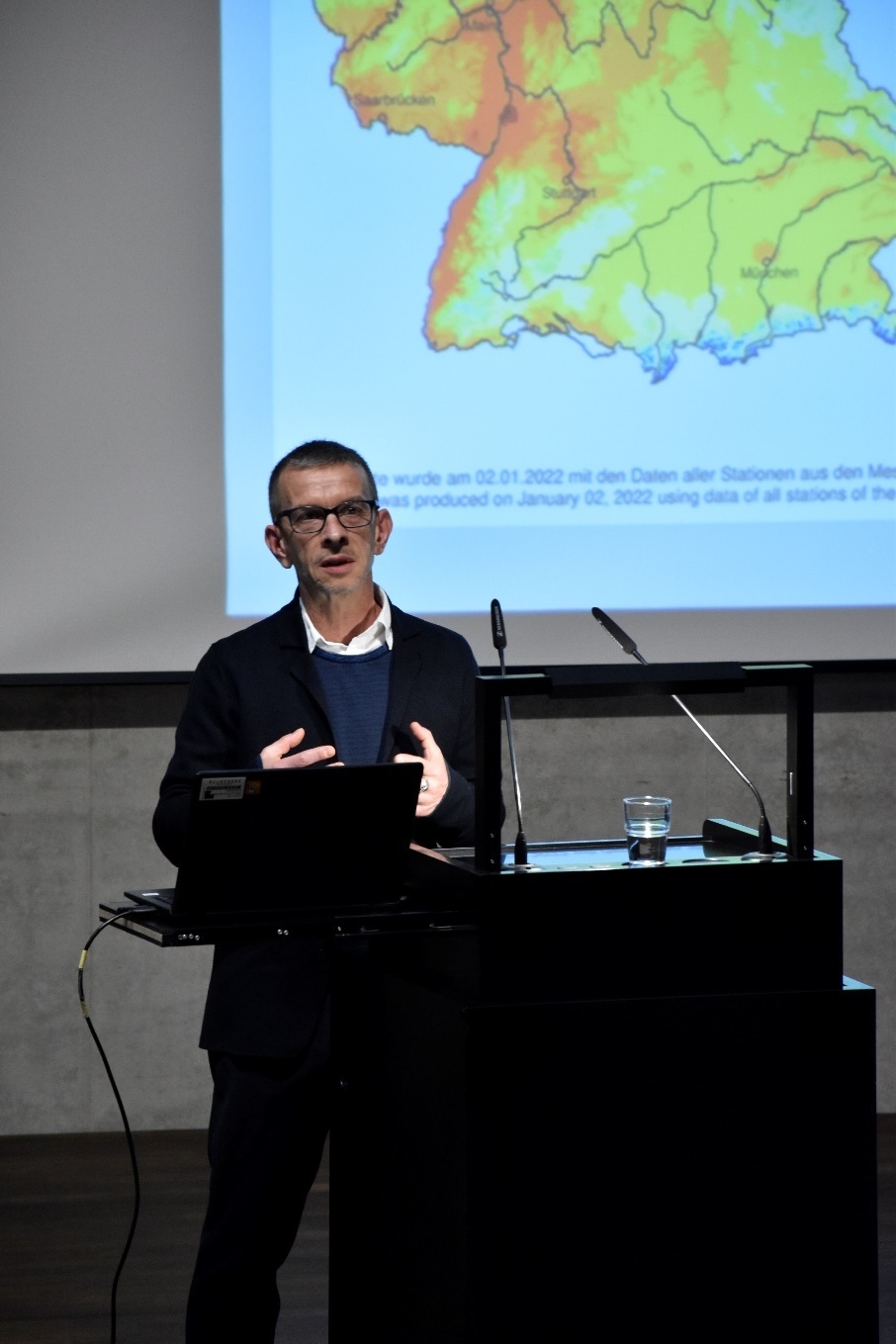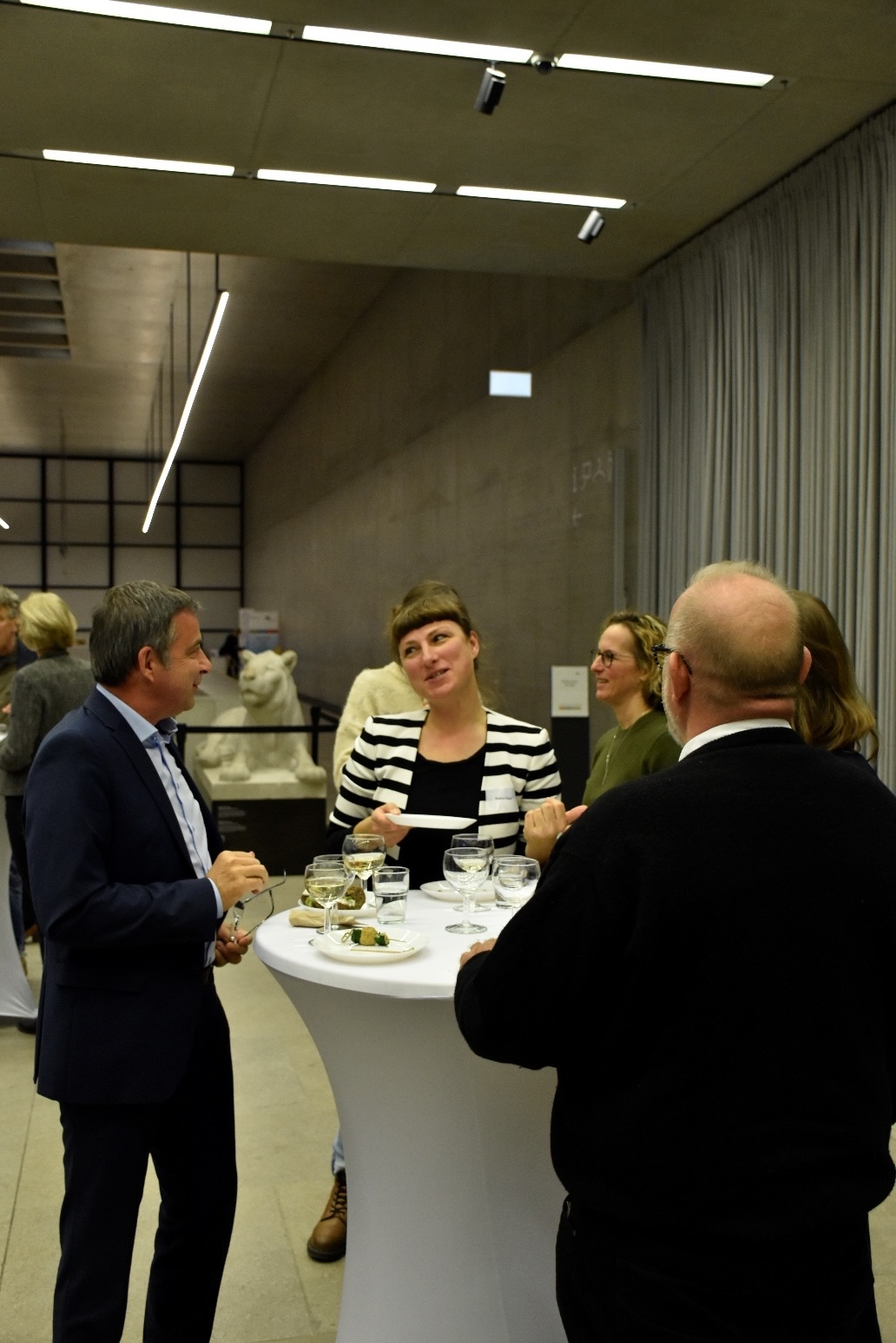On November 14th and 15th, 2023, Berlin hosted the specialist conference CULTURE! GOOD! PROTECT! co-organized by the German UNESCO Commission, with a focus on the growing threats to cultural heritage from climate change and armed conflict. Held under the theme “Learning from crises – preparing for future threat scenarios,” the conference brought together leading experts in the fields of cultural property protection, disaster management, and climate resilience. The event was a collaborative effort by SiLK – Security Agency for Cultural Property, the Federal Office for Civil Protection and Disaster Assistance, the German Society for the Protection of Cultural Property, Blue Shield Germany, and other key institutions, with generous support from the Federal Government Commissioner for Culture and the Media.
The first day of the conference on November 14th was dedicated to exploring the profound impact of climate change on cultural heritage and the pressing need for innovative, sustainable preservation strategies to protect irreplaceable cultural treasures. The event opened with a keynote address by Prof. Dr. Hermann Parzinger, President of the Stiftung Preußischer Kulturbesitz (SPK), who emphasized the critical importance of integrated risk management and long-term planning to address the environmental threats facing cultural institutions. Dr. Sebastian Saad from the Federal Government Commissioner for Culture and Media (BKM) further underscored the urgency of sustainability and crisis prevention in cultural heritage management, stressing that the risks from climate change, such as flooding, extreme weather events, and shifts in local ecosystems, are already being felt across Europe and require immediate action. Prof. Dr. Christian Hanus from Danube University Krems shared European case studies of structural preparedness for protecting cultural property, drawing lessons from past challenges to demonstrate the need for proactive planning and cross-border collaboration. Evangelina Eleftheriou from the Rathgen Research Laboratory at the National Museums of Berlin introduced the concept of “Green Museums,” advocating for climate-friendly practices within cultural institutions, including energy-efficient technologies and sustainable materials in conservation efforts. Mr. Bill Landsberger (Rathgen Research Laboratory), discussed the rising threat of climate-driven pest outbreaks in museums, focusing on climate-dependent forecasting methods that can help institutions anticipate and mitigate damage from pests. Dr. Abdelrhman Fahmy (Rathgen Research Laboratory) presented the EU Horizon Stecci Project, highlighting the risks affected the limestone of Stecci and non Stecci monuments in Europe by climate change, particularly due to temperature fluctuations and increased moisture exposure, and emphasized the need for targeted sustainability assessments to preserve these historic sites. The day concluded with a talk by Almut Siegel and Dr. Alke Dohrmann, both from Rathgen Research Laboratory, who advocated for holistic risk management strategies, stressing the importance of interdisciplinary collaboration between conservators, scientists, and policymakers to develop comprehensive frameworks for protecting cultural heritage from climate-related risks. Together, the day’s presentations underscored the urgency of addressing climate change’s impact on cultural heritage and the need for sustainable, science-driven solutions to ensure the preservation of cultural treasures for future generations.
The second day (November 15th) shifted its focus to the protection of cultural property in times of armed conflict. Prof. Dr. Maria Böhmer, President of the German UNESCO Commission, opened the day by emphasizing UNESCO’s role in safeguarding cultural heritage in conflict zones. This was followed by a keynote speech from Mr. Gero Dimter, Vice President of SPK, who explored the intersections of military conflict and cultural property protection. A key highlight was the presentation by Prof. Dr. Sabine von Schorlemer from TU Dresden, who discussed the significance of the 1954 Hague Convention for the protection of cultural property in times of war, and the need for reform in international law to better address current global threats. Mr. Alexander Gatzsche, Special Representative for Military Cultural Property Protection of the German Society for the Protection of Cultural Property, offered insights into the current threats of armed conflict, emphasizing the importance of preparedness for cultural institutions facing such scenarios.
Throughout the conference, various experts provided invaluable insights into the practicalities of protecting cultural heritage in times of crisis. Mr. Marcus Jacob from the Federal Office for Civil Protection (BABS), Switzerland, presented the concept of “Temporary Refuge” for cultural property, discussing Switzerland’s role as a “Safe Haven” during international crises. Meanwhile, Ms. Susann Harder of Blue Shield Germany presented findings from the Blue Shield survey on the implementation of the Hague Convention, revealing the current status of cultural property protection efforts in various countries. The conference closed with a forward-looking discussion on how institutions can strengthen their risk management strategies and ensure that cultural property is preserved for future generations in the face of both environmental and human-made challenges. The CULTURE! GOOD! PROTECT! conference successfully highlighted the pressing need for cross-sectoral collaboration in safeguarding cultural heritage. The shared knowledge and innovative approaches presented over the two days will undoubtedly contribute to shaping the future of cultural property protection in an era of escalating global risks.
Photos by Almut Siegel, Alke Dohrmann and Cristina Aibeo
















